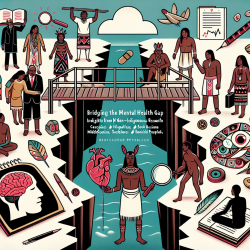In the quest to improve outcomes for children who have experienced early adversity, educators are increasingly turning to trauma-informed approaches. One such approach, Trust Based Relational Intervention (TBRI®), has shown promising results in a recent study conducted in two Tasmanian Child and Family Learning Centres (CFLCs). This blog delves into the key findings of the study and how educators can leverage these insights to enhance their practice.
The Study: An Overview
The research article, "Exploring the Effectiveness and Sustainability of Trust Based Relational Intervention (TBRI®) as a Trauma-informed Approach in Two Tasmanian Child and Family Learning Centres," presents a comprehensive analysis of TBRI®'s impact on early childhood professionals. Conducted in Tasmania, the study aimed to evaluate the effectiveness and sustainability of TBRI® in a real-world educational setting.
Key Findings
The study identified several key themes that underscore the effectiveness of TBRI®:
- Self-Development: Participants reported significant personal and professional growth, gaining new knowledge about trauma, attachment, and early brain development. They also acquired practical strategies to better connect with and support children.
- Relationships: The centrality of relationships in TBRI® was highly valued. Educators learned how to build trust and foster positive connections, which are crucial for creating a safe and supportive learning environment.
- Improved Outcomes: TBRI® was found to be effective in supporting vulnerable children and families, leading to improved social and emotional outcomes.
- Evidence-Based Approach: The empirical foundation of TBRI® provided educators with confidence in its effectiveness, reinforcing their commitment to implementing the approach.
Challenges and Barriers
Despite the positive outcomes, the study also highlighted several challenges:
- Personal and Professional Capacity: Educators expressed concerns about their ability to consistently implement TBRI® principles, particularly in managing their own emotional responses and changing long-held beliefs.
- Time: The limited time available to interact with children and the need for extended periods to evidence change were significant barriers.
- Continuity of Approach: Ensuring a consistent approach across all caregivers and integrating TBRI® into everyday practice was identified as a challenge.
- Intergenerational Trauma: Addressing the impact of trauma across generations within families required additional support and strategies.
Recommendations for Practitioners
Based on the study's findings, the following recommendations can help practitioners enhance their trauma-informed practice:
- Professional Development: Ongoing training and support are essential to build confidence and competence in implementing TBRI® principles.
- Parental Involvement: Developing workshops and resources for parents can help create a consistent approach between home and educational settings.
- Reflective Practice: Encouraging self-reflection among educators can help them understand and manage their own emotional responses, fostering a more supportive environment for children.
- Collaborative Approach: Ensuring all caregivers are trained in TBRI® can provide a unified approach, enhancing the overall effectiveness of the intervention.
In conclusion, the study underscores the potential of TBRI® to transform trauma-informed practice in early childhood education. By addressing the identified challenges and leveraging the strengths of the approach, educators can create more supportive and effective learning environments for children who have experienced trauma.
To read the original research paper, please follow this link: Exploring the Effectiveness and Sustainability of Trust Based Relational Intervention (TBRI®) as a Trauma-informed Approach in Two Tasmanian Child and Family Learning Centres.










